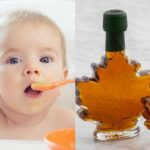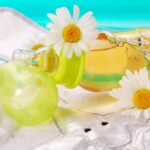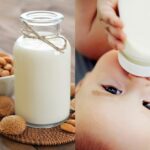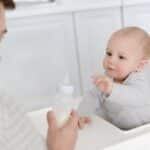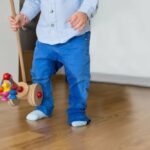Kelp seaweed is known for making headlines. It’s boasted to be one of the superfoods that are packed with amazing vitamins and nutrients.
As most people add this to their diet, they instantly wonder if they can give some to their little one. In small doses, and when given properly, it’s perfectly safe to give your baby kelp seaweed.
You can let them try this as soon as they are ready for solid foods!
What Is Kelp?
Kelp is a type of seaweed, hence why it’s often referred to as kelp seaweed. Its distinctive look helps identify this type of seaweed from other types. Kelp has a brownish color that resembles algae.
Kelp seaweed typically grows along rocky coastlines. It can only be found growing in saltwater. Some seaweed farms have managed to grow kelp away from coastlines, though.
What Is The Difference Between Kelp And Seaweed?
Most people use these two terms interchangeably, but that can cause quite a bit of confusion. Seaweed is an umbrella term that encompasses a lot of different plants and algae that grow in the water.
Kelp, however, is a subcategory of seaweed. It is a specific type of seaweed, complete with its own characteristics and nutritional benefits that make it different from other marine-based plants.
Benefits Of Taking Kelp Seaweed
View in gallery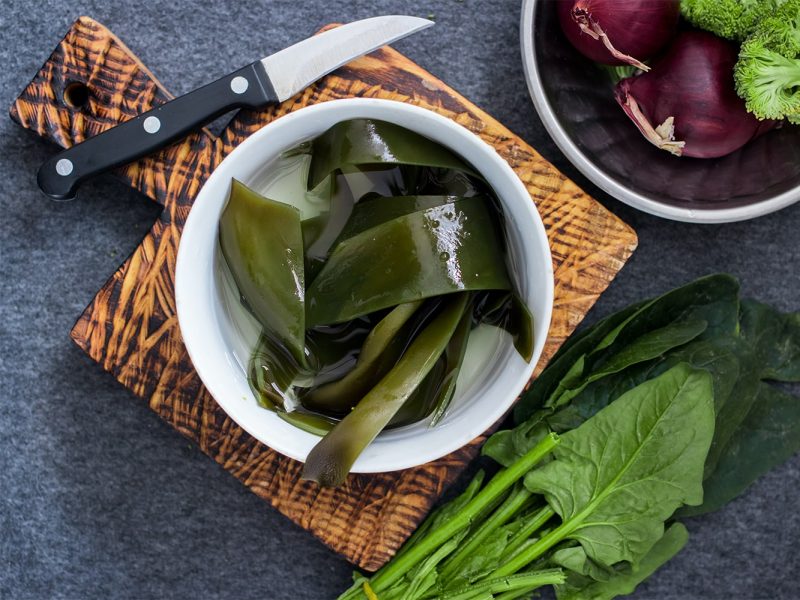
Kelp is packed with so many nutritional benefits that it’s perfectly understandable why we all want to include it in our diet! There are quite a few ways that kelp can benefit both babies and older children.
Great Source Of Fiber
Kelp is packed with fiber. Fiber not only helps to regulate your digestive system, but it can also help kids feel full for longer periods of time. This can help babies be less fussy, and help older children concentrate better in school.
The Best Source Of Iodine
When it comes to a natural source of iodine, you’re not going to find a better option than kelp. It naturally absorbs iodine from its environment to guarantee that you get plenty of it when taking a bite.
Iodine is known for helping increase cognitive functioning as well as increasing concentration.
Good Source Of Calcium
If your child can’t have dairy, you already know that it can be a struggle to find a great non-dairy source of calcium to keep their bones and teeth strong.
However, kelp and other seaweed can help with that. Kelp is packed with enough calcium to help your little lactose-intolerant one get their recommended amount. It’s always better if you can get nutrients from dietary sources instead of supplements.
Kelp Is Packed With Antioxidants
The high level of antioxidants found in kelp is another key benefit of this superfood.
The antioxidants found in kelp can help fight free radical damage, keeping your baby healthy. Minerals, such as zinc and manganese, are believed to help prevent cancer, too.
View in gallery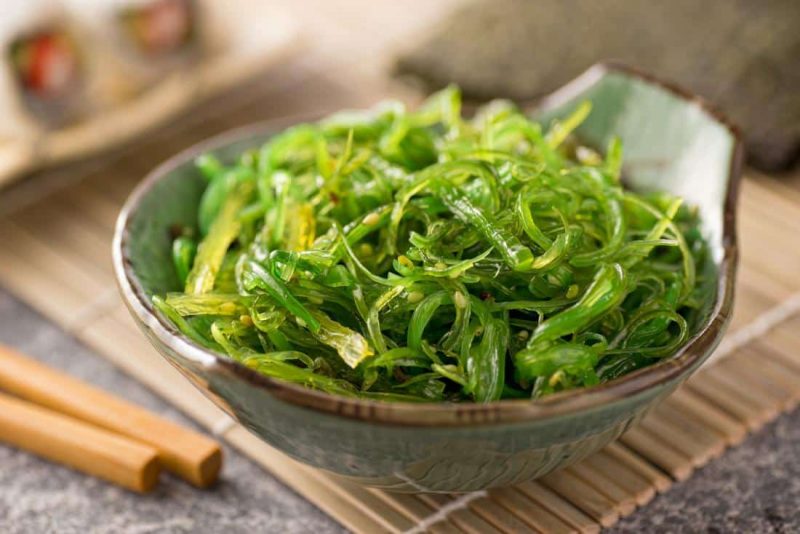
Other Benefits Of Eating Kelp
Kelp is also known to help balance blood sugar, fight obesity, prevent cancer and fight inflammation. It’s a great source of:
- Vitamin K
- Vitamin A
- Iron
- Folate
- Copper
- Potassium
- Vitamin D
- Vitamin E
This is a great food to help balance your body and provide it with the nutrients that it desperately needs to get from food. This is also one of the reasons why it’s a great addition to your baby’s diet.
Kelp Seaweed Side Effects
While kelp is a great source of vitamins, minerals, and antioxidants, it’s important to remember that you should never give your baby too much.
Giving more than a little bit a week can result in side effects. Adults can also have serious side effects if they consume too much kelp.
Abnormal Thyroid Function
Although most people take iodine to improve balance in their body, too much can result in your thyroid not functioning correctly. This can cause both hyperthyroidism and hypothyroidism.
If your baby has had thyroid problems, avoid giving them kelp. You’ll also want to make sure that you only give babies a small amount of kelp. Giving them 1/2 tablespoon a few times a week is plenty.
Kelp Can Contain Metals
Some varieties of kelp are known for containing metals that can be harmful, such as lead and aluminum.
Usually, this is the direct result of kelp being grown in contaminated waters. To make sure that your kelp is safe, double-check where it came from.
View in gallery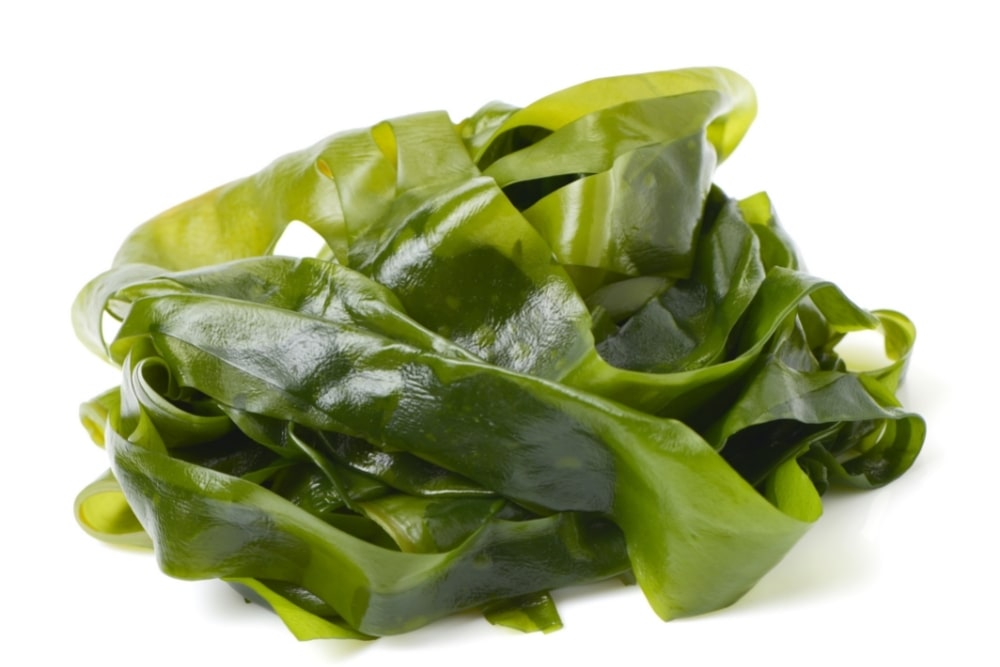
Remember That Supplements Are Not Monitored By The FDA
While kelp is great for you, and your baby, kelp supplements might not be. According to this article, and the study that followed it, a certain brand of kelp supplements caused severe arsenic poisoning of a woman.
Because of this, it’s important to remember that you should get your weekly dose of kelp from food, powder, or flakes. Avoid giving your baby supplements.
Read Labels Carefully
When the United Kingdom conducted a study of over 200 kelp supplements, they found that fewer than 30 of them contained information regarding how much iodine was in them.
This can result in a person taking too much, or giving their baby too much iodine. Although the study examined supplements, it’s important to note that kelp powder can also be considered a supplement.
Make sure that you know what is in it before giving it to your baby.
How To Give Your Baby Kelp
[amalinkspro type=”showcase” asin=”B082XFS5QS” apilink=”https://www.amazon.com/dp/B082XFS5QS?tag=mominformedcom-20&linkCode=osi&th=1&psc=1″ new-window=”true” addtocart=”false” nofollow=”true” sc-id=”4″ img-sizes=”500:500″ imgs=”https://m.media-amazon.com/images/I/51Z-WQIylCS._SL500_.jpg” link-imgs=”false” specs=”UNLIKE OTHER SEAWEEDS Numami Atlantic Kombu is CULTIVATED IN the clean waters of the Atlantic – NORWEGIAN COAST instead of collected from the beach or from Asia. Harvesting only what we call baby seaweed – 4-month old kelp – from our SEAWEED FARM GUARANTEES great flavor and soft texture. Every batch is 3-PARTY TESTED TO ensure highest quality. Our freeze-drying technique locks in nutrients making the flakes very light and small but there is still over 300 grams of fresh seaweed in every packet.” btn-color=”#ff9900″ btn-text=”Check Price” alignment=”aligncenter” hide-prime=”0″ hide-image=”0″ hide-price=”0″ hide-button=”0″ width=”750″]Organic Kombu Kelp Flakes[/amalinkspro]
When giving your baby kelp, it’s important to make sure that you don’t overdo it. Only give them a little bit at a time. You’ll also need to make sure that the kelp is cut into pieces that are small enough for a baby to eat.
Cut Kelp Into Very Small Pieces
Kelp seaweed is known for quite a few things, including its slippery texture. Adults are even likely to choke on it! That means that it can be a choking hazard for your baby.
To make sure that they can swallow kelp safely, cut it into very small pieces, and only give them a little bit at a time.
Because babies might try to eat more than one piece at a time, make sure that you only give them one piece of kelp at a time. This can prevent choking.
Consider Kelp Snacks
If your little one is old enough to eat kelp, they are more than likely old enough to eat snacks or will be soon. Because kelp is considered a superfood, there are plenty of snacks on the market that have kelp in them.
Foods are approved by the FDA, and often have labeling to help you identify how much iodine is in them.
Give Babies Small Quantities Of Kelp
When you give your little one kelp, make sure that you only give them a tiny bit at a time. A sprinkle of kelp powder or a few kelp snacks are fine.
This is because kelp has such a high salt content. While giving them too much once won’t hurt, doing this frequently can lead to health problems, such as thyroid problems.
If you’re using kelp powder, stick with 1/2 tablespoon 2-3 times per week. Although there are plenty of vitamins and nutrients in kelp, too much of anything is a bad thing. You don’t want to overdo it.
Kelp Powder Or Flakes Are Great Ideas
If you’re concerned about your little one choking, but would like to help them try new foods, consider using kelp powder or kelp flakes. You can sprinkle these into their baby food for a new taste without the choking hazard!
Check Out Products Already In Your Home
Some parents aren’t out to make their little ones try new foods. Instead, they want to make sure that their baby can enjoy all of the health benefits that kelp has to offer.
View in gallery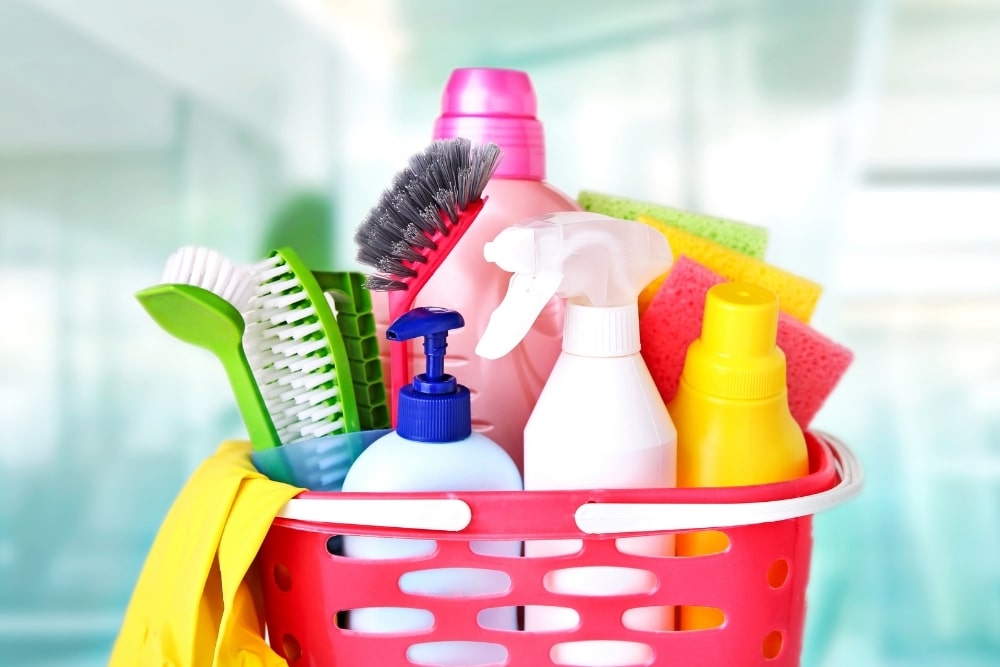
What most people don’t know is that kelp is already an ingredient in plenty of household items. For example, some common products that have kelp in them include:
- Shampoo
- Body wash
- Toothpaste
- Ice cream
- Yogurt
- Bakery products
- Salad dressing
You might already have kelp at your house and not know it! Check the labels of your dairy products and bakery products first. Giving your little one kelp might be as easy as feeding them some yogurt.
In Conclusion
You can give your baby kelp seaweed as soon as they are ready to start eating solid foods. Make sure that they don’t consume too much iodine, and check out this website for some creative ways to add kelp to your diet!
